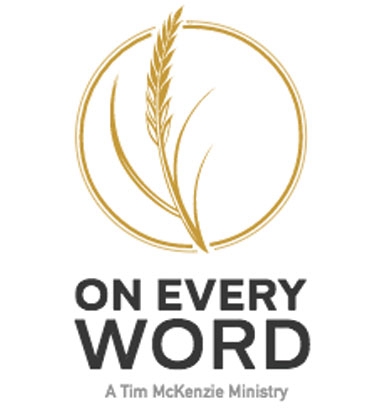The Doe of the Dawn
Psalm 22 has been on my mind, and I hope you will take time to read it – and read it with a prophetic eye to Jesus. Written 1,000 years before Jesus was born yet having “My God, my God, why have You forsaken Me?” as an opening line, this psalm should easily capture our attention!
It has been called “The Forgotten ‘I Am’” because of this statement: “I am worm and not a man” (v 6). And like a worm, Jesus was scorned, despised, rejected, mocked and crushed by those He came to save.
We should be stunned by the cry “they have pierced my hands and my feet” (v 16) being written some 500 years before the earliest known crucifixion by the Persians in 519 BC!
We should cringe as they gamble for Jesus’ only earthly possessions at the foot of His Cross while He is dying for their sins (v 18)!
And we should be completely overwhelmed as we are ushered into the very thoughts of Jesus as He suffered the intense agony of the Cross (v 14-18)!
As you will see, this psalm is both a cry of despair (v 1-21) and a song of praise (v 21-31). The brutal savagery surrounding Jesus is clearly marked by the numerous references to wild animals – not the least of which are the human beasts. The song has a throbbing cadence in the Hebrew with a quickening pace and sense of urgency that sways between the desperation of self/circumstances on one hand, and the assurance of God/His Truth on the other.
Despite translation inaccuracies in several versions, the pivot point of this psalm is found at the end of verse 21: “YOU HAVE ANSWERED ME!” (as in the NASB). Without that profession – that revelation – the dramatic shift from verse 21 to verse 22 doesn’t make much sense.
In light of the Cross, this victory cry is that of Resurrection!
We also should consider the inscription preceding this psalm (it must be important because not all psalms have them): “For the music director; upon Aijeleth Hashshahar. A Psalm of David.” That Hebrew phrase translates “the doe of the dawn.” David is saying the lyrics of this song should “ride upon” his melody called “the doe of the dawn.”
Picture David rising before the dawn just to be alone with the Lord. In the quiet of the morning as he sits in prayer with God near a stream, he rejoices in the rising of the sun – another day blessed by the glory and goodness of the Lord – and He gives thanks.
But then the Lord animates their conversation by the entrance of a doe. David sees her silently and gracefully bow to quench her thirst – an intimate emotion he would express in another one of his songs of his own soul thirsting for the Lord (Psalm 63:1). Little does she know he is watching as she cautiously eases over to the grass heavy with the morning dew.
Quietly the sun rises. Quietly the doe grazes. And so, without a sound, the Spirit gives birth to a tender song matching the quiet beauty of the morning and the gentle grace of the doe. Morning has broken. A new day.
And later, as God gives David the lyrics of Psalm 22, David must have noticed the stark irony and striking paradox. For riding upon his gentle, tender melody are now cries of anguish and despair – suffering and distress – vicious pursuit and cruelty – prayers of urgent petition for help and rescue – right alongside strong professions of trust, hope, assurance and even praise!
This side of the Cross, this irony sings the very heart of the Gospel.
Oh, the irony of the gentle Good Shepherd silently going to the Cross like a sheep led to slaughter! Oh, the irony of He who knew no sin being made sin so that in Him, we might become the righteousness of God! Oh, the irony of the Holy Son of God forsaken that we might be redeemed – condemned that we might be justified!
No wonder this psalm ends with this glorious declaration: “A seed will serve Him; it will be told of the Lord to the coming generation. They will declare His righteousness to a people who will be born that He has performed it.”
Jesus embodied these very words on the Cross when He proclaimed, “It is finished!”
Because of Jesus, morning has broken, and a new day has dawned.
“He is not here, for He has risen.”

